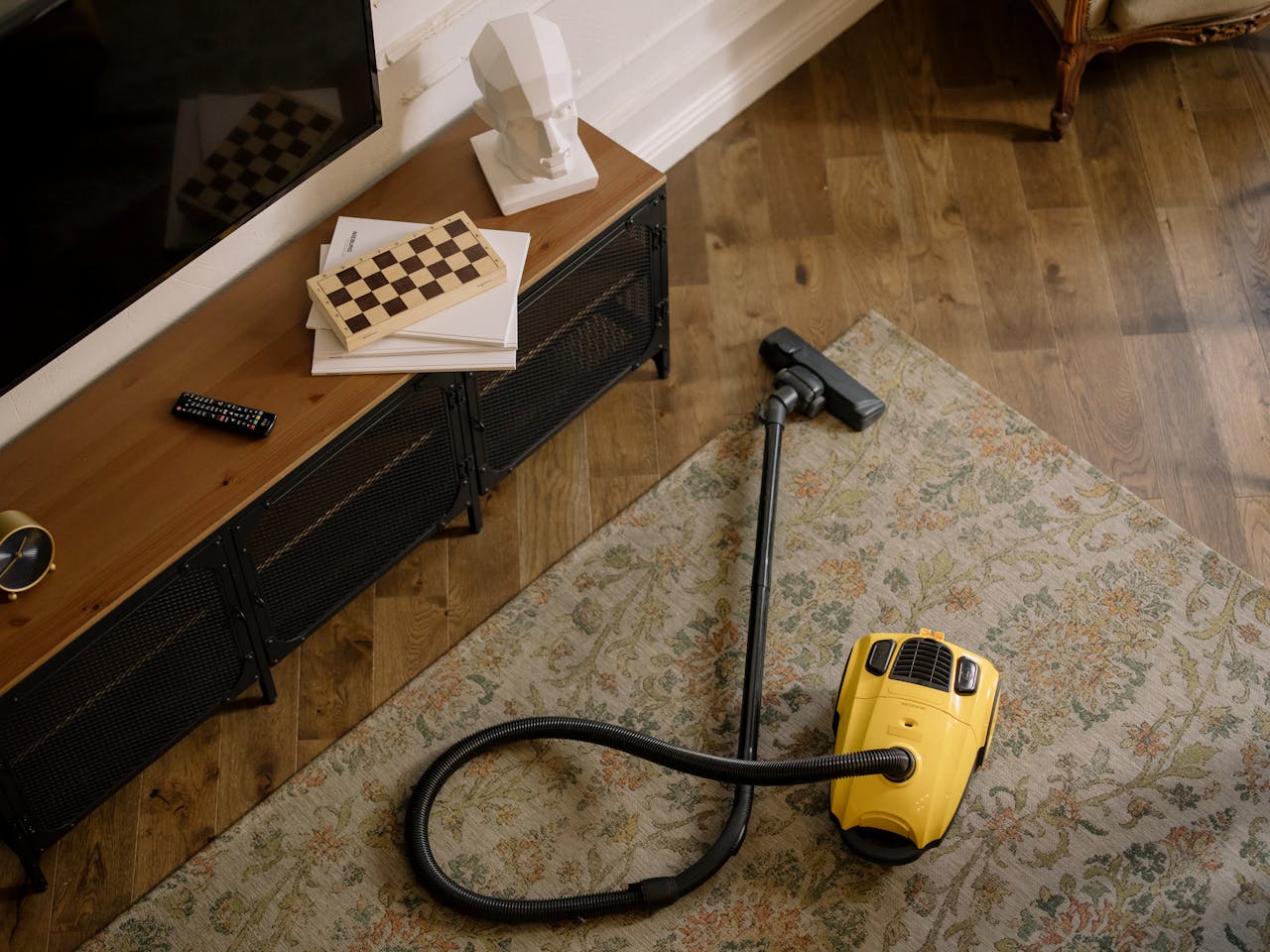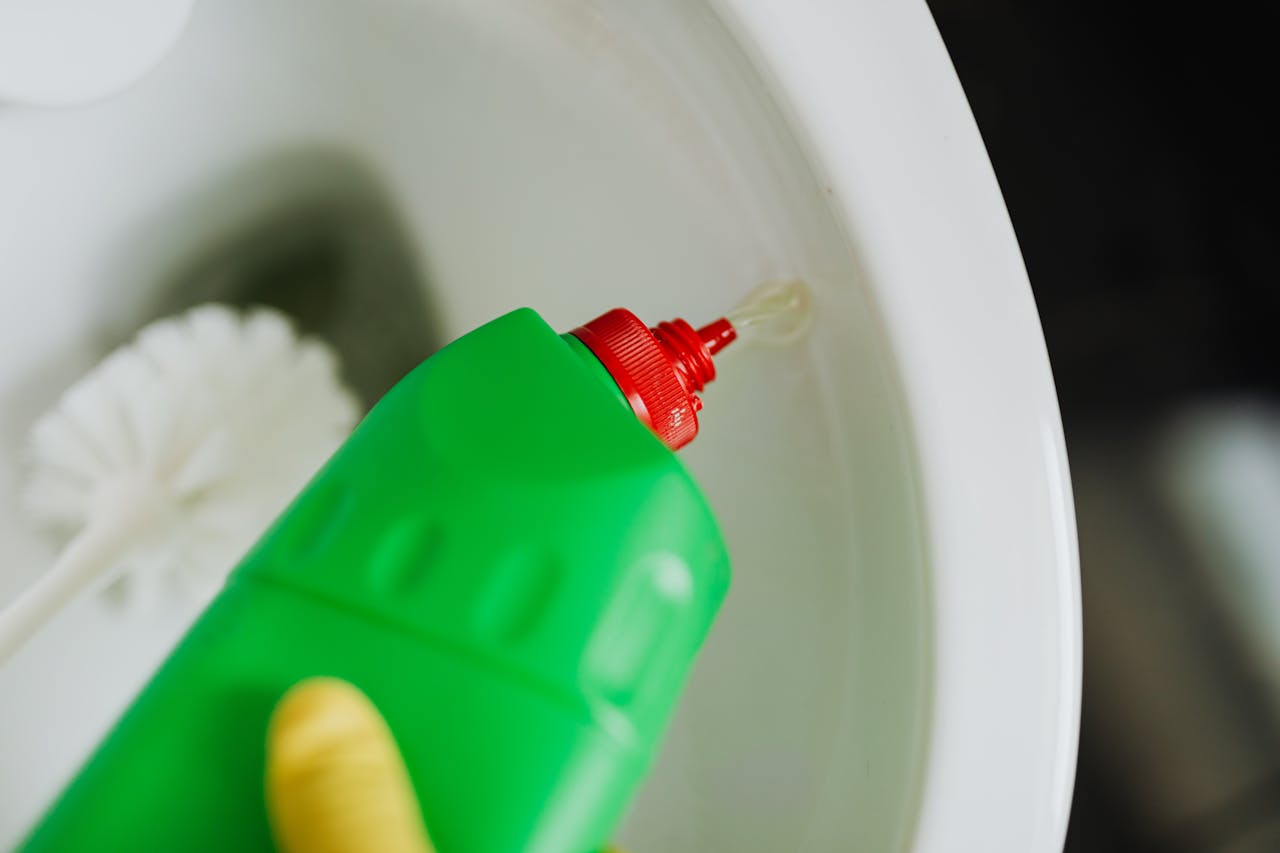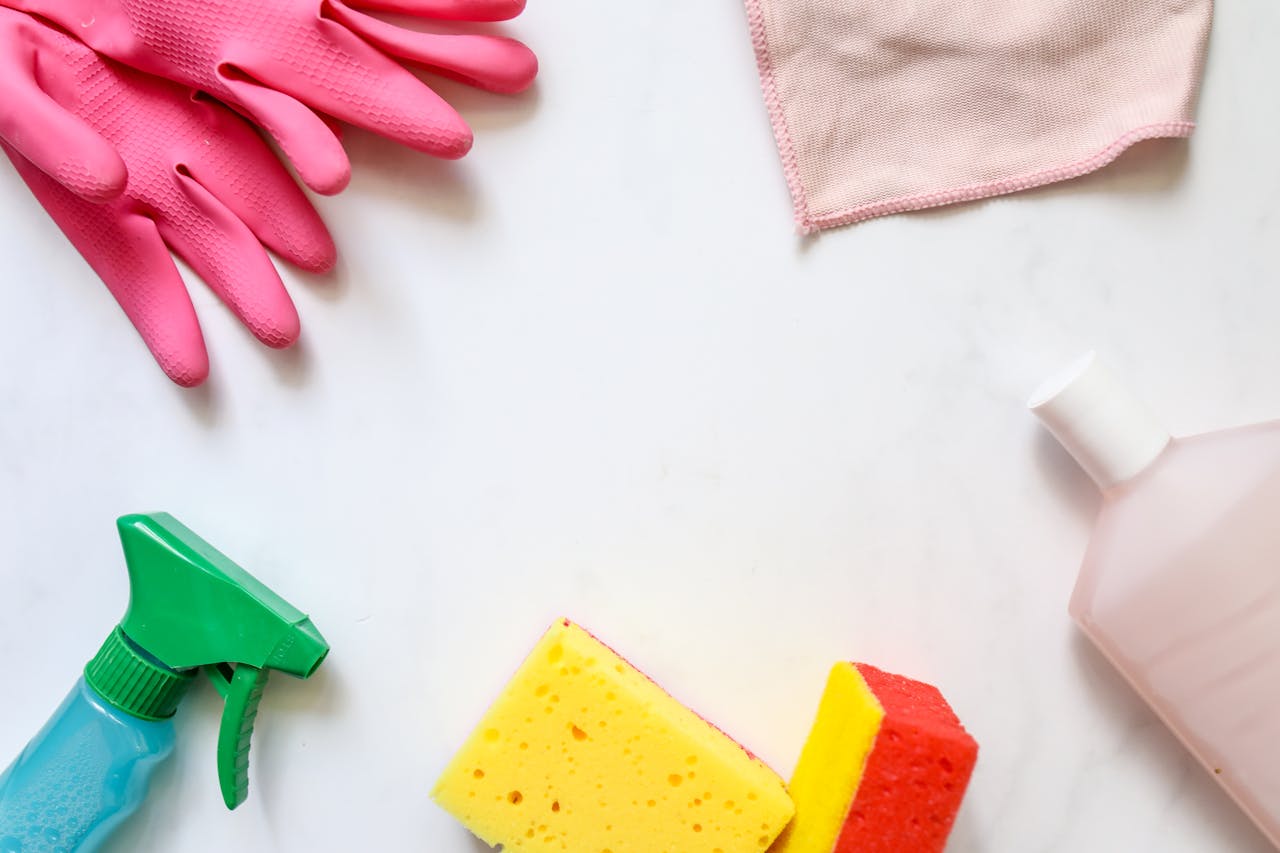If you’ve been living at home up until now, you’ve probably been able to access all your parents’ cleaning gear and products. And if you’ve hired a professional cleaner, pros often have their gear. But now you’re on your own – either in your place or without the pro cleaner.
What Do You Need?
Cleaning gear falls into two basic categories: permanent and consumable. Here are the top ten essential cleaning gear from both categories that you will need if you’re starting from scratch.

Permanent Gear
1. A vacuum cleaner. This can be used for lino, wood, parquet, carpet, upholstery, and curtains. It is a must for keeping carpets flea-free. Check what happens to the dust—one with a reusable bag is often better value for money. Ones that deal with liquid are handy but not essential.
2. A bucket. You will use this for any liquid Cleaning product involved in washing floors, windows, cars, and disgusting stuff (e.g., blood). You will also use it for soaking very filthy laundry items, handwashing, building sandcastles at the beach, keeping Christmas trees, throwing water to extinguish fires or break up dog fights, and being sick. Every home must have one!
3. A heavy-duty scrubbing brush. One is the bare essential, but having several in different strengths and sizes is also very handy.
4. Rags. These will be used for dusting, shining, and wiping down various surfaces. They can also get in and around tricky places scrubbing brushes can’t go easily.
5. Rubber gloves. These protect your hands from chapping when exposed to harsh chemicals and from direct contact with disgusting substances. When rubber gloves get holes in them, cut the cuff bits up for heavy-duty rubber bands.
6. An old towel. Use it to blot up excess liquid after dousing an area and to clean spills.
7. A mop. The squeeze-out type is better than the old-fashioned type unless you have a specialised wringer bucket to get the excess water out. Otherwise, you will be left with a puddle after mopping the floor (if this has happened, see item 6 above).
8. A broom. A good stiff one works well for outside areas. For inside areas, the vacuum cleaner will work. For outside, a stiff broom works brilliantly. It is also good for getting spiderwebs out of tricky corners.
9. A window squeegee. You can use this to dry the cleaner off the car or house windows. It’s best not to use this on mirrors, however—use a soft, lint-free cloth or even old newspaper for that.
10. Dustpan and brush. These are absolutely essential for cleaning up small areas of debris and for dealing with broken glass.

Essential Consumables
1. Dishwashing liquid. This is good for dishes, but you can also use it to wash cars, floors, and windows (it will leave streaks, however).
2. A non-scratch scouring product for bathroom surfaces, whiteware, and stovetops. You can use a proprietary cleaner or old-fashioned baking soda and elbow grease. Baking soda is best for inside fridges and microwaves, as it is non-toxic. Vinegar also works well inside fridges and microwaves and gives a very satisfying fizz if you use baking soda first and vinegar second.
3. Disinfectant. You will use this for cleaning the lavatory and anywhere that has been in contact with particularly unhygienic substances. If you have to tackle a particularly foul fridge (I’ve seen some mouldy horrors), disinfectant will be a stronger germ-killer than baking soda – but you may need to rinse it off with plain water afterwards.
4. Chlorine bleach can be used as a disinfectant and to treat laundry stains. It should not be used on coloured surfaces or substances, and it should never be mixed with an ammonia-based product.
5. Window or glass cleaner. This is not so much for windows – you’d use gallons this way – but for mirrors and monitors. Apply with a soft cloth, then remove with newspaper or a soft, lint-free cloth.
6. Toilet bowl cleaner. The best brands are proprietary brands with a nozzle that squirts under the seat rim.
7. Heavy-duty general cleaning liquid. Ammonia-based products can really bust through deeply ingrained dirt and grime on floors, etc. For safety reasons, never mix with chlorine bleach; always protect your hands with rubber gloves.
8. Furniture polish. You won’t use this all the time, but if you have natural wood furniture, you will want to buff it up and protect the wood occasionally.
9. Metal polish. This is for silver, brassware, and the like. It can also be used to shine up belt buckles.
10. Oven cleaner. This is another product you won’t use very frequently, but you will need it occasionally to get rid of burnt-on ick inside the oven. If you have a flat-topped stove where the elements are covered by a glassy surface, it will need its own special cleaners and protectors.
Everything You Need To Know About Scrubbing Brushes
Not all scrubbing brushes are created equal. Use the wrong one for a cleaning job, and you risk ruining what you’re scrubbing or not shifting the dirt properly. One of the stereotyped images of domestic cleaning involves a charlady on her knees scrubbing the floor, and there’s some truth in that. After all, an experienced professional house cleaner like a charlady can’t be wrong!
Hard brushes (large): These have bristles made of thick plastic and are usually quite sizeable (about the size of a smallish brick). If you try dragging it across your bare skin, you will give yourself a set of little scratches. This one is best used for cleaning hard floor surfaces such as tiles, vinyl, marble, flagstones and lino.
Hard brushes (small): These are your typical dishwashing brushes. Use them for…. washing dishes.
Medium brushes (large): These can be made of plastic or natural bristle and feel like a typical nail brush. These are a good all-round cleaning tool and can be used for spot-cleaning stains on carpets, handwashing or removing stains from clothes that are made from non-delicate fabrics (i.e. you can use a brush like this on denim or cotton jersey, but don’t use them on frilly knickers). It can also be used for scrubbing floors. No home should be without one. They are less likely to scratch plastic surfaces or wood, so you can use them for scrubbing things like dog kennels. But probably be careful with painted surfaces.
Medium brushes (small): These are nail brushes. They are suitable for cleaning dirt from underneath nails (obviously) and removing small stains on clothing – they’re perfect for the typical bloodstain (but make sure you use cold or lukewarm water).
Long-handled medium brushes: These are your typical loo brushes. Some people hate them and consider them unhygienic, while others swear by them. To prevent a loo brush from becoming unhygienic, store it in a container filled with dilute disinfectant—and remember to change the disinfectant periodically.
Medium-soft brushes: These are not as common as they used to be, but they are perfect for cleaning and polishing leather boots and shoes. You can also use them as lint brushes to remove fluff from clothing after the tissue has gone through the wash.
Soft-bristled brushes (large) tickle when you rub them over your skin. They are often used for washing cars and can be used for really filthy exterior windows with a bit of warm soapy water.
Soft-bristled brushes (small): These are commonly known as toothbrushes. Do not throw out your old toothbrushes; they are ideal for all cleaning jobs. They are soft and get into small, tricky places, so they are great for cleaning jewellery. Tricky places an old toothbrush can get into, like no other cleaning tool, including the hinges of the toilet seat, carved woodwork, bits of knick-knacks, etc.
Wire brushes are not your usual cleaning tools. Keep these for removing paint, and do not put them in your cleaning toolkit, or you will scratch everything.
Brooms: Soft-bristled brooms are usually used indoors to sweep hard floors and remove cobwebs. Hard-bristled brooms are used outdoors, e.g., to sweep driveways.

